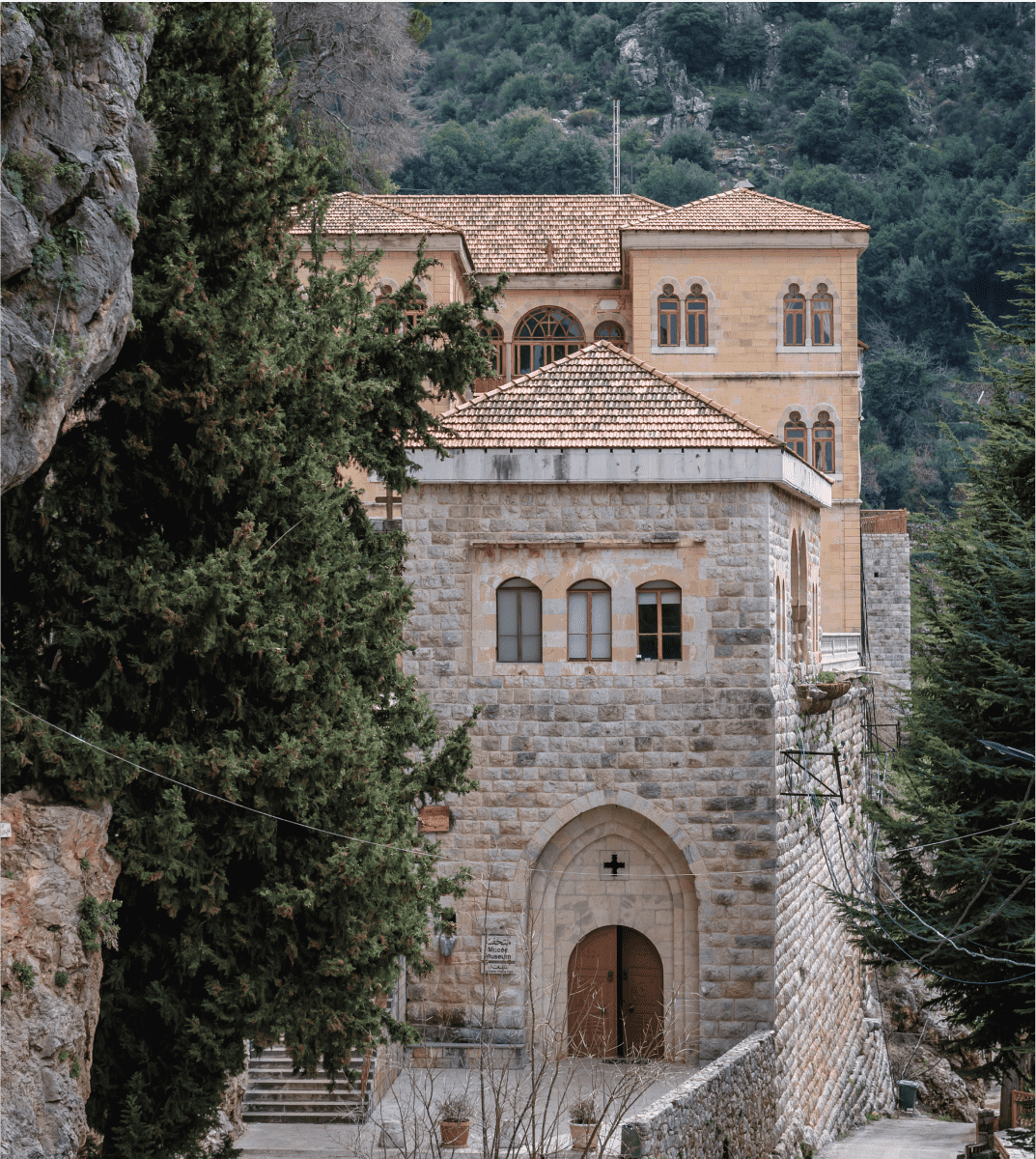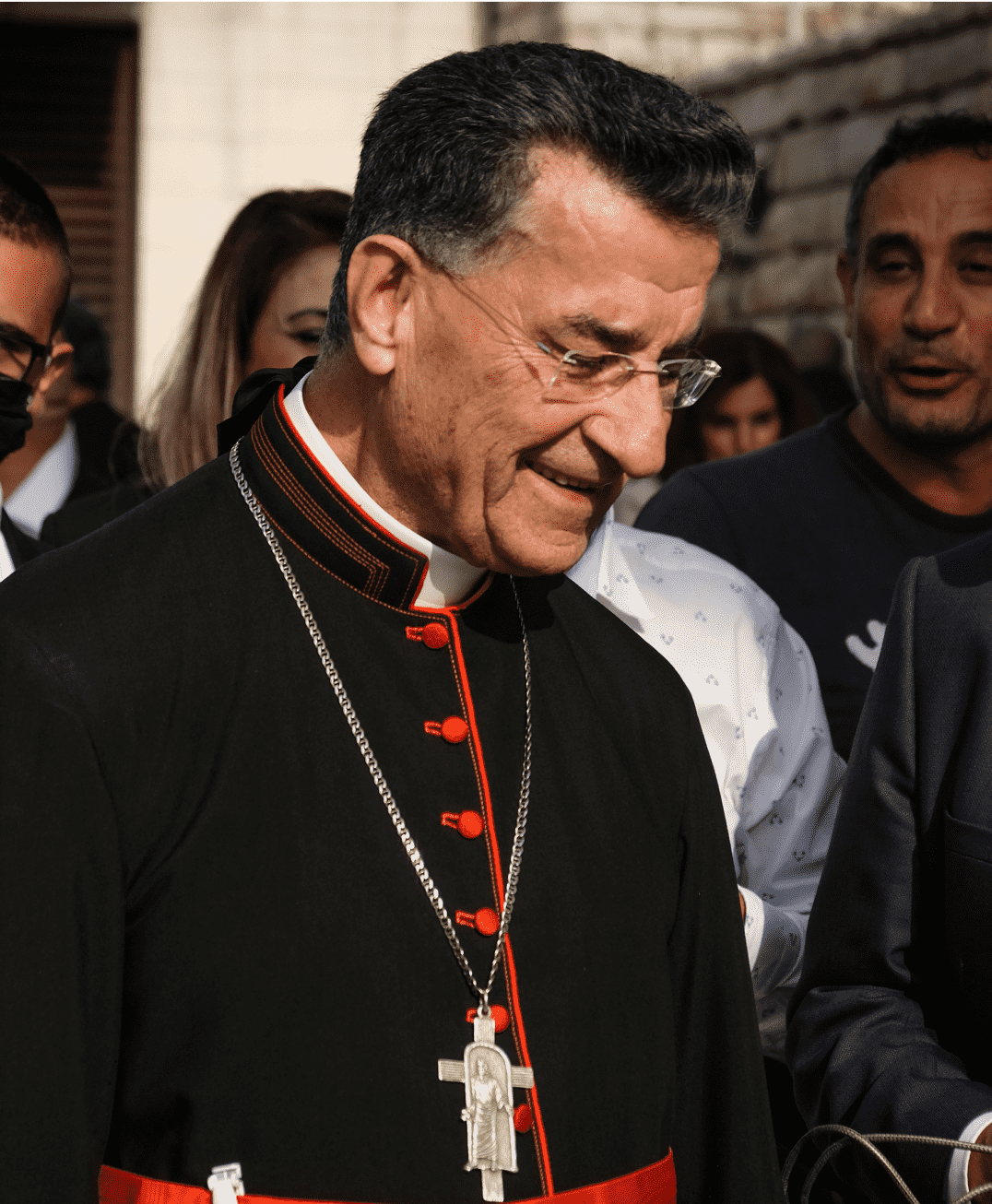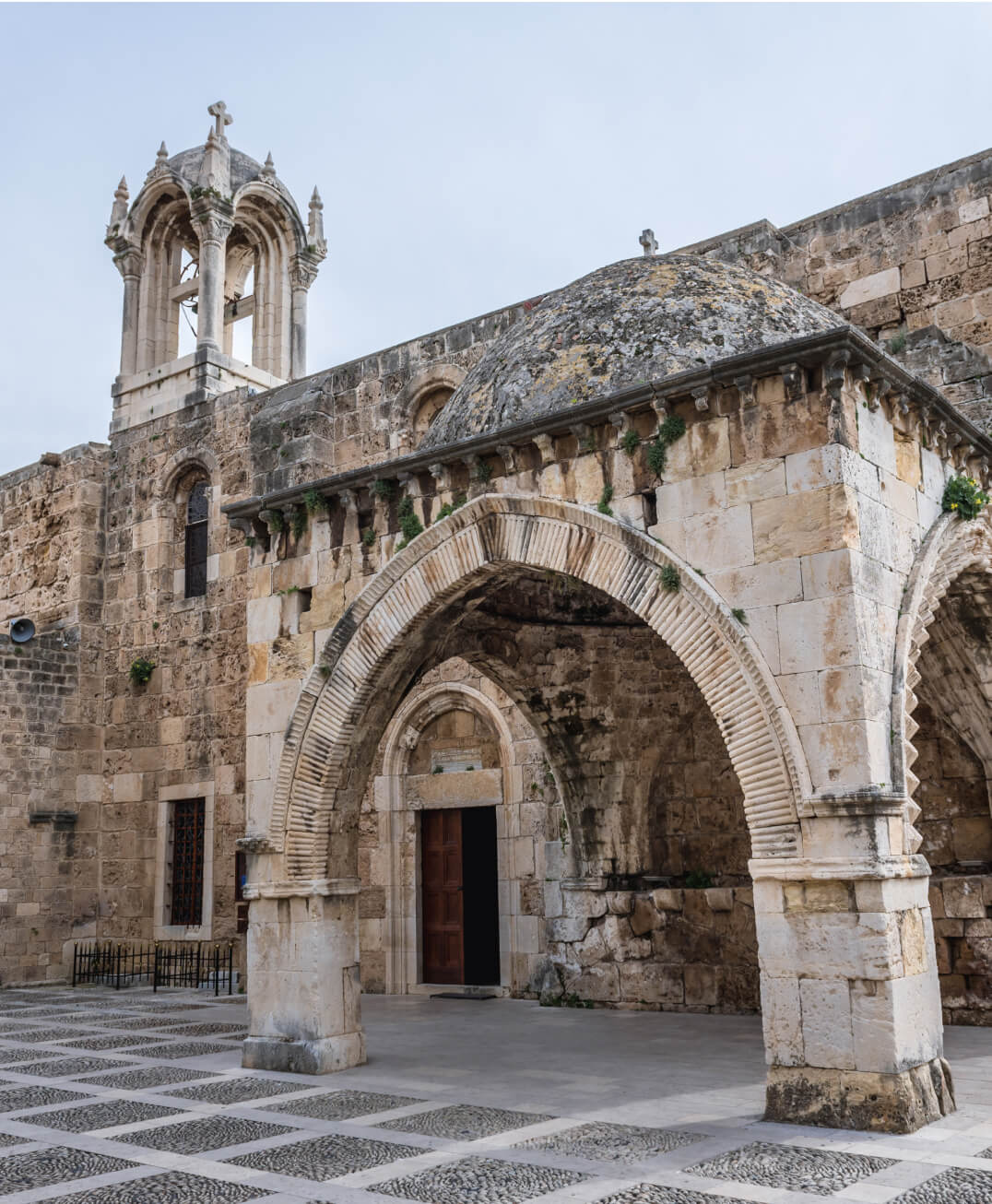The Maronite Patriarchal Synod held between 2003 and 2006 defined the Maronite Church as an Antiochene Syriac Church with a special liturgical heritage, in full union with the Holy See and the Pope, embodied in her Lebanese and Eastern environment and countries of expansion.
The Church was founded by the followers of St Maroun, a monk who lived in Antioch in the 4th and 5th centuries. His monastic and ascetic way of life inspired many to the faith in a time where Christian persecution was prevalent in the region.
Early Maronites settled in Northern Syria, building a monastery named “The House of Maroun.” In their missionary work, many monks travelled and settled in Lebanon, converting people from paganism and establishing churches. Following the Ecumenical Council of Chaldeon in 451 AD, which condemned Monophysitism, 350 Maronite monks went to meet and reconcile with the Monophysites, but were ambushed and martyred.
The Maronites fled and found refuge in Lebanon, where they took shelter and built monasteries in hard-to-reach places, able to practice their religion freely in the midst of Byzantine and Islamic conquests in the Middle East. With the patriarchal seat vacant, St Jean Maroun, the then-Bishop of Batroun was chosen as the first Maronite Patriarch.
The 13th century was a blossoming period for the Maronites, who, under the protection of Crusaders, were able to expand and build more churches, monasteries and convents. After the departure of the Crusaders, a number Maronites left with them and established communities in the Mediterranean, some of which still exist today. The Maronites who remained in Lebanon retreated back to the mountains, where they lived until Soleiman the Magnificent, Ottoman ruler, confirmed the rights of the Maronites to manage their own affairs.
In 1584, the Maronite School of Rome was built under Pope Gregory’s reign. The school graduated 40 bishops, 12 of which became Patriarchs, including Patriarch Estephan El Douaihy, the first Maronite historian.
In the 1860s, war with the Druze saw at least 10,000 Maronites killed, triggering a wave of Maronite migration. The Maronites who left Lebanon established churches wherever they settled, with many choosing to settle in Australia, South Africa and North and South America.
More Maronite migration occurred through the 1900s, which saw churches, monasteries and convents being established globally. Today, there are an estimated 3-4 million Maronites in the world, with communities across Australia, the Americas, Europe and Africa.


Our Patriarch – Mar Bechara Boutros Cardinal Rai, Patriarch of Antioch and All the East
Mar Bechara Boutros Cardinal Rai was born in Himlaya, Matn District, Lebanon in 1940. He received his education from Collège Notre Dame de Jamhour, a Jesuit school in Lebanon, and later went on to study at Lateran University in Rome. He joined the Mariamite Maronite Order in 1962 and was ordained as a priest in 1967. From 1967 to 1975, he was responsible for the Arabic programs of Vatican Radio. In 1975, he received his PhD in canon and civil law.
In 1986, he was appointed as the titular bishop of Caesarea Philippi and consecrated as auxiliary Bishop of Antioch in 1986 by Patriarch Nasrallah Boutros Sfeir. He became the bishop of Byblos in 1990 and was elected as the patriarch of the Maronites in 2011, after getting more than two-thirds of the votes of the 39 bishops. He was formally requested and received ecclesiastical communion from Pope Benedict XVI in 2011. He was made a cardinal by Pope Benedict XVI in a consistory on 24 November 2012, making him the fourth Maronite Patriarch created cardinal. He participated as a cardinal elector in the conclave that elected Pope Francis in 2013, and was named a member of the Congregation for Catholic Education by Pope Francis in 2013.
For more information about the Maronite Patriarchate, please visit Bkerke.org
Eparchies of the Expansion
| Name | Dean of the Cathedral | Contact Info |
|---|---|---|
| Maronite Catholic Patriarchate of Antioch |
His Eminence Beatitude Cardinal Mar Bechara Boutros Rai, Patriarch of Antioch and all the East |
w: Bkerki.org |
| Eparchy of Our Lady of Lebanon-Los Angeles |
Most Reverend Mgr. Elias Abdallah Zeidan Bishop of the Maronite Catholic Eparchy of Our Lady of Lebanon-Los Angeles |
w: https://eparchy.org/ |
| Eparchy of Saint Maron of Brooklyn |
Most Reverend Bishop Gregory John Mansour, Eparch of Saint Maron of Brooklyn |
w: https://www.stmaron.org/ |
| Eparchy of Saint Maron of Brooklyn |
Most Reverend Bishop Gregory John Mansour, Eparch of Saint Maron of Brooklyn |
w: https://www.stmaron.org/ |
| Eparchy of St Maroun Canada |
Most Reverend Bishop Paul-Marwan Tabet Bishop of the Maronite Catholic Eparchy of St Maroun Canada |
w: https://www.maronites.ca/ |
| Maronite Catholic Eparchy of France |
His Excellency, Mgr Maroun-Nasser Gemayel Bishop of the Eparchy of Our Lady of Lebanon of Paris of the Maronites Apostolic Visitor of the Maronites for Northern and Western Europe |
w: https://maronites.fr/ |
| Maronite Eparchy of the Annunciation West & Central Africa |
Most Reverend Bishop Simon Faddoul, of the Maronite Eparchy of the Annunciation West & Central Africa Apostolic Visitor to South Africa |
w: https://annunciation-eparchy.com/ |
| Maronite Catholic Apostolic Exarchate of Colombia |
Most Reverend Fadi Abou Chebel Apostolic Exarch of the Maronite Catholic Apostolic Exarchate of Colombia |
|
| Maronite Catholic Eparchy of Our Lady of Lebanon in São Paulo |
Most Reverend Edgard Madi, Maronite Archbishop of Our Lady of Lebanon Archdiocese – Brazil |
w: http://www.igrejamaronita.org.br/home/ |
| Maronite Catholic Eparchy of San Charbel in Buenos Aires |
Most Reverend Habib Chamieh, Bishop of the Maronite Catholic Eparchy of San Charbel in Buenos Aires |
|
| Maronite Catholic Eparchy of Our Lady of Martyrs – Mexico |
Most Reverend Georges Saad Abi Younes, Bishop of the Maronite Catholic Eparchy of Our Lady of Martyrs – Mexico |
w: https://www.sancharbel.org.mx/ |
| Our Lady of Lebanon – London |
Lebanese Maronite Order | w: https://www.maronitechurch.org.uk/ |
Register in Lebanon
The Maronite Foundation works to help Maronites around the world to preserve their identity and citizenship. To this end the Foundation is more than a great resource for information. Its Lebanese Nationality Program coordinates between the Ministry of Foreign Affairs & Emigrants and people of Lebanese descent around the world to apply for their Lebanese citizenship and benefit from their rights.
For more information, visit: https://maronitefoundation.org/

Our Maronite Saints
To learn about our Maronite Saints, please click here.

